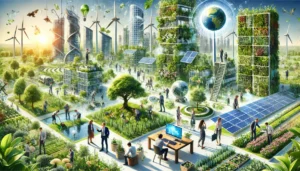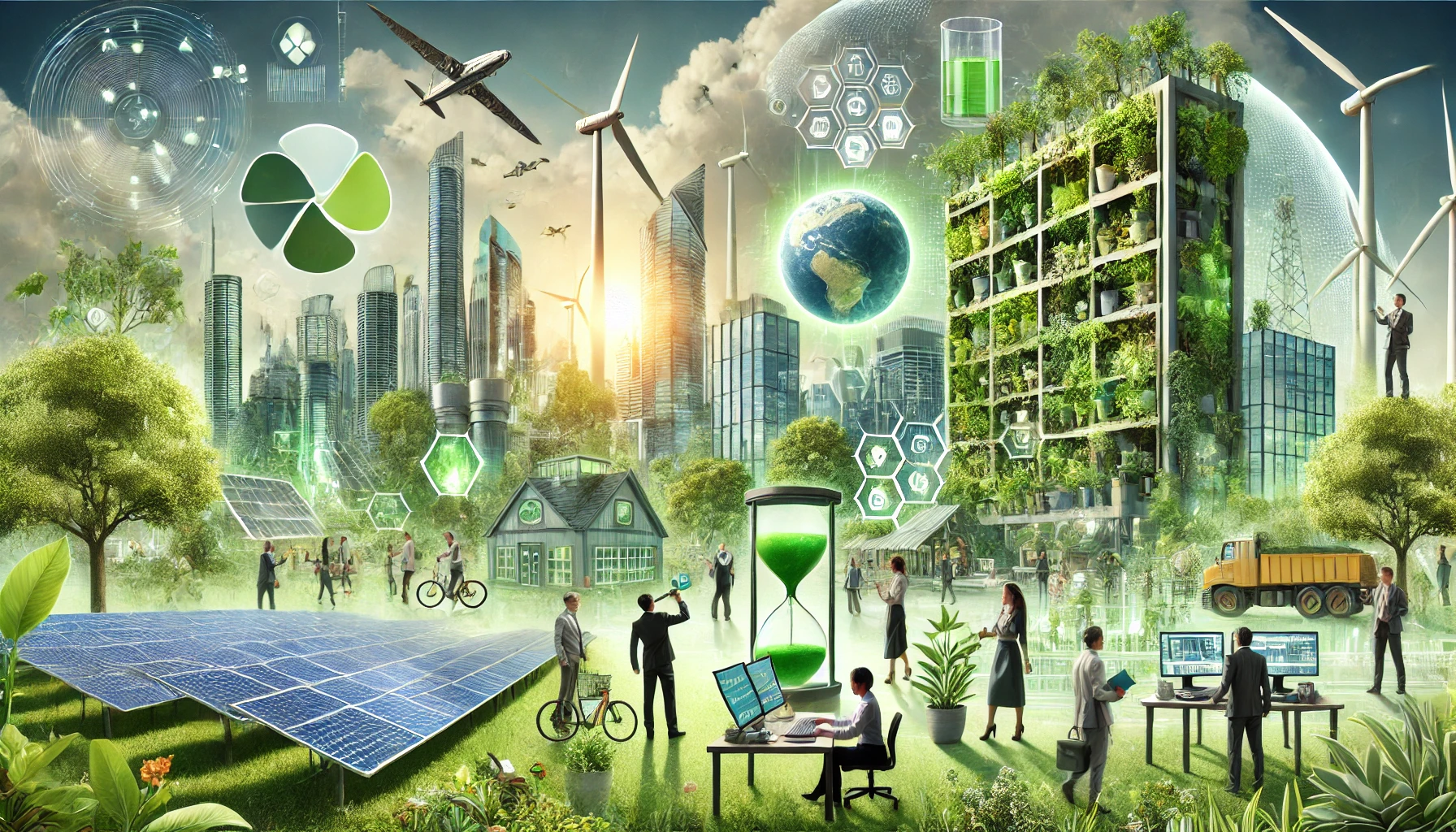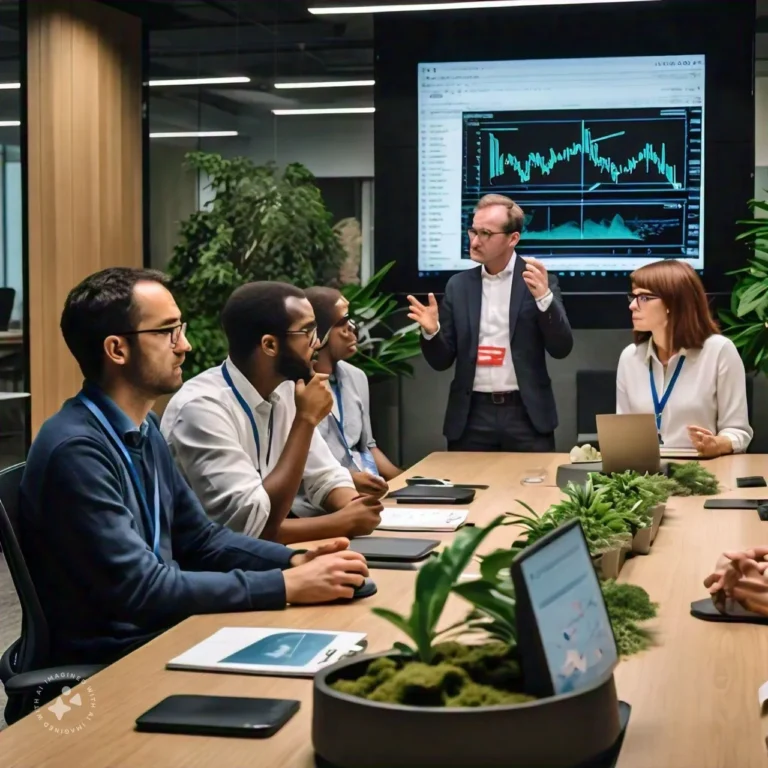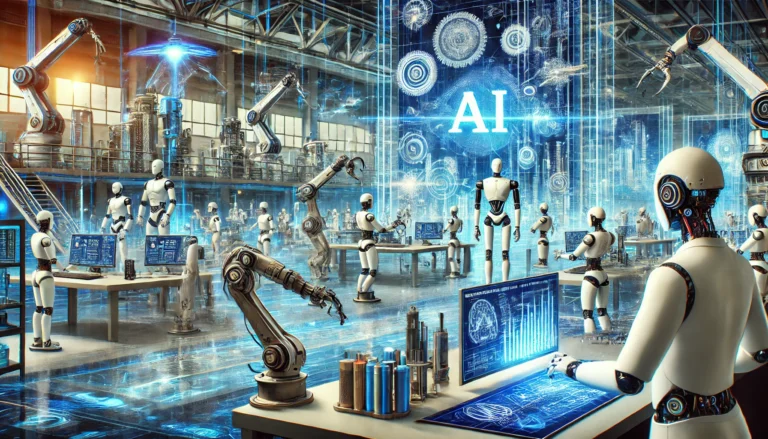Future Careers in Sustainability: Jobs Shaping the Next Generation
Sustainability isn’t just a buzzword; it’s quickly becoming a critical aspect of almost every industry. The world is shifting, and with it, the demand for professionals who can help build a greener future is soaring. Whether you’re passionate about saving the planet, reducing carbon footprints, or innovating solutions for renewable energy, the field of sustainability offers exciting and impactful career opportunities.
But what does a career in sustainability actually look like? What kind of roles can we expect to dominate the job market in the coming decades? Let’s dive in and explore the future of sustainable careers that are set to shape the next generation.
What Is a Career in Sustainability?
A career in sustainability involves working in sectors that focus on preserving natural resources, promoting eco-friendly practices, and improving environmental health. These jobs can span various industries, from renewable energy and green architecture to environmental law and sustainable agriculture.
Why Sustainability Jobs Are Booming
The increasing awareness of climate change and the global push toward greener policies have made sustainability a key focus for companies, governments, and individuals. With initiatives like the Paris Agreement and the United Nations’ Sustainable Development Goals (SDGs), many industries are now prioritizing sustainability, creating a surge in demand for professionals with the expertise to drive eco-conscious innovations.
Top Industries Driving Sustainability Careers

Several industries are pioneering the sustainability movement. Here are the top sectors where you can expect the most growth in sustainable job opportunities:
- Renewable Energy: Solar, wind, and hydropower.
- Sustainable Agriculture: Organic farming and regenerative agriculture.
- Green Building: Eco-friendly architecture and construction.
- Environmental Law: Legal advocacy for environmental policies.
- Waste Management: Reducing and reusing waste, recycling innovations.
1. Renewable Energy Specialist
A Renewable Energy Specialist focuses on developing and optimizing clean energy sources like wind, solar, geothermal, and hydropower. As fossil fuels become less viable, this role is becoming more crucial in reducing carbon emissions.
With countries striving to meet net-zero targets, careers in renewable energy will likely be among the most in-demand jobs of the future.
2. Sustainability Consultant
Companies are increasingly aware of their environmental footprint and are turning to Sustainability Consultants for advice. These professionals analyze a company’s operations and provide strategies to minimize its impact on the environment, making businesses more efficient and eco-friendly.
3. Environmental Scientist
Environmental Scientists study ecosystems to understand the effects of human activities on our planet. They use this knowledge to help governments and businesses make informed decisions about land use, conservation, and pollution control.
4. Circular Economy Specialist
The circular economy is all about reducing waste and making the most of resources. Circular Economy Specialists design systems that repurpose materials and products instead of discarding them. It’s a game-changer in industries like fashion, manufacturing, and electronics.
5. Urban Planner with a Focus on Sustainability
Urban Planners shape the cities of tomorrow, designing spaces that are not only functional but also sustainable. This means incorporating green spaces, public transportation, and energy-efficient buildings into city designs. Urban planning that prioritizes sustainability is crucial as the global population becomes more urbanized.
6. Climate Change Analyst
A Climate Change Analyst examines data related to the climate and provides insights into future trends and potential environmental challenges. These professionals are vital in helping governments, businesses, and NGOs adapt to and mitigate the effects of climate change.
7. Environmental Engineer
Environmental Engineers develop technologies and processes that help prevent and remediate pollution. Whether it’s creating wastewater treatment systems or designing ways to reduce emissions, this role is essential for improving the health of our ecosystems.
8. Green Architect
As construction remains one of the largest contributors to global carbon emissions, the need for Green Architects has never been greater. These architects design buildings that are energy-efficient, use sustainable materials, and incorporate renewable energy systems.
9. Conservation Scientist
Conservation Scientists focus on the protection and management of natural resources. Whether it’s preserving forests, managing wildlife habitats, or restoring ecosystems, these professionals are on the front lines of protecting our planet’s biodiversity.
10. Sustainable Fashion Designer
The fashion industry is infamous for its environmental toll, but the rise of Sustainable Fashion Designers is changing the narrative. These designers create clothing that is made from eco-friendly materials and produced in a way that minimizes waste and pollution.
11. Corporate Social Responsibility (CSR) Manager
CSR Managers ensure that businesses operate in a socially responsible manner. This involves everything from reducing a company’s carbon footprint to ensuring ethical labor practices. With consumers increasingly demanding more transparency, the role of CSR Manager is more important than ever.
12. Eco-Tourism Guide
Eco-tourism is all about exploring the world while minimizing your environmental impact. Eco-tourism Guides specialize in sustainable travel, educating tourists on how to appreciate and protect natural environments.
13. Sustainable Supply Chain Manager
Supply chains are a major source of environmental impact, and Sustainable Supply Chain Managers work to ensure that materials are sourced responsibly, and that waste and emissions are minimized throughout the production process.
14. Environmental Educator
In order to create a greener future, we need more people who are passionate about educating others about the environment. Environmental Educators work in schools, non-profits, and community organizations to spread awareness about sustainability issues and solutions.
15. Waste Reduction Specialist
Waste Reduction Specialists focus on creating systems to minimize waste, often by encouraging recycling and composting. With the amount of global waste rapidly increasing, this role is crucial in finding sustainable ways to manage waste.
The Skills You Need for a Career in Sustainability
What skills do you need to thrive in these future-facing roles? Here’s a quick list of the most valuable skills for sustainability careers:
- Critical Thinking: The ability to analyze and solve complex problems.
- Innovation: Developing creative solutions for sustainability challenges.
- Communication: Explaining complex environmental issues clearly and effectively.
- Data Analysis: Interpreting environmental data and trends.
- Collaboration: Working across various industries and sectors to create sustainable solutions.
Conclusion
The future of sustainability careers is bright, with endless possibilities for innovation and positive change. As industries shift toward greener practices, the demand for skilled professionals who can drive this transition will only continue to grow. Whether you’re passionate about renewable energy, eco-friendly design, or protecting biodiversity, there’s a sustainability career waiting for you.
FAQs
1. What is the most in-demand sustainability job?
Renewable Energy Specialists and Sustainability Consultants are currently among the most sought-after roles, as they are key players in the global shift toward greener energy and business practices.
2. Do sustainability careers pay well?
Yes, sustainability careers often offer competitive salaries, especially in specialized roles like Environmental Engineers, Sustainability Consultants, and Corporate Social Responsibility Managers.
3. What degree do I need for a career in sustainability?
Degrees in environmental science, engineering, urban planning, or business with a sustainability focus are excellent options. Specialized certifications in sustainability can also be valuable.
4. Is there a growing demand for sustainability jobs?
Absolutely! With increasing environmental concerns and regulatory pressures, the demand for sustainability professionals is expected to grow significantly in the coming years.
5. How can I get started in a sustainability career?
Start by gaining experience through internships, volunteering, or working with organizations focused on sustainability. Networking and staying informed about the latest trends in sustainability will also help you break into this field.







